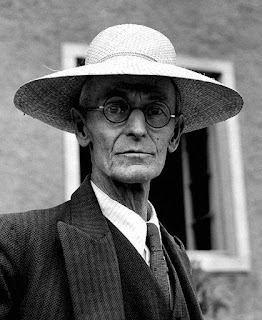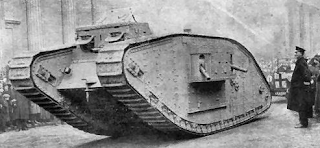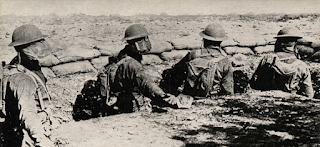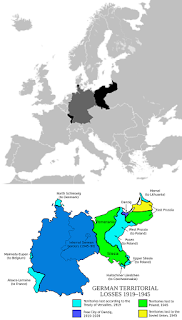 |
Being wise cannot be hidden
the same as being simpleminded.
|
Space and Time! now I see it is true, what I guess’d at,
What I guess’d when I loaf’d on the grass,
What I guess’d while I lay alone in my bed,
And again as I walk’d the beach under the paling stars of the morning.
My ties and ballasts leave me, my elbows rest in sea-gaps,
I skirt sierras, my palms cover continents,
I am afoot with my vision.
By the city’s quadrangular houses—in log huts, camping with lumbermen,
Along the ruts of the turnpike, along the dry gulch and rivulet bed,
Weeding my onion-patch or hoeing rows of carrots and parsnips, crossing savannas, trailing in forests,
Prospecting, gold-digging, girdling the trees of a new purchase,
Scorch’d ankle-deep by the hot sand, hauling my boat down the shallow river,
Where the panther walks to and fro on a limb overhead, where the buck turns furiously at the hunter,
Where the rattlesnake suns his flabby length on a rock, where the otter is feeding on fish,
Where the alligator in his tough pimples sleeps by the bayou,
Where the black bear is searching for roots or honey, where the beaver pats the mud with his paddle-shaped tail;
Over the growing sugar, over the yellow-flower’d cotton plant, over the rice in its low moist field,
Over the sharp-peak’d farm house, with its scallop’d scum and slender shoots from the gutters,
Over the western persimmon, over the long-leav’d corn, over the delicate blue-flower flax,
Over the white and brown buckwheat, a hummer and buzzer there with the rest,
Over the dusky green of the rye as it ripples and shades in the breeze;
Scaling mountains, pulling myself cautiously up, holding on by low scragged limbs,
Walking the path worn in the grass and beat through the leaves of the brush,
Where the quail is whistling betwixt the woods and the wheat-lot,
Where the bat flies in the Seventh-month eve, where the great gold-bug drops through the dark,
Where the brook puts out of the roots of the old tree and flows to the meadow,
Where cattle stand and shake away flies with the tremulous shuddering of their hides,
Where the cheese-cloth hangs in the kitchen, where andirons straddle the hearth-slab, where cobwebs fall in festoons from the rafters;
Where trip-hammers crash, where the press is whirling its cylinders,
Wherever the human heart beats with terrible throes under its ribs,
Where the pear-shaped balloon is floating aloft, (floating in it myself and looking composedly down,)
Where the life-car is drawn on the slip-noose, where the heat hatches pale-green eggs in the dented sand,
Where the she-whale swims with her calf and never forsakes it,
Where the steam-ship trails hind-ways its long pennant of smoke,
Where the fin of the shark cuts like a black chip out of the water,
Where the half-burn’d brig is riding on unknown currents,
Where shells grow to her slimy deck, where the dead are corrupting below;
Where the dense-starr’d flag is borne at the head of the regiments,
Approaching Manhattan up by the long-stretching island,
Under Niagara, the cataract falling like a veil over my countenance,
Upon a door-step, upon the horse-block of hard wood outside,
Upon the race-course, or enjoying picnics or jigs or a good game of base-ball,
At he-festivals, with blackguard gibes, ironical license, bull-dances, drinking, laughter,
At the cider-mill tasting the sweets of the brown mash, sucking the juice through a straw,
At apple-peelings wanting kisses for all the red fruit I find,
At musters, beach-parties, friendly bees, huskings, house-raisings;
Where the mocking-bird sounds his delicious gurgles, cackles, screams, weeps,
Where the hay-rick stands in the barn-yard, where the dry-stalks are scatter’d, where the brood-cow waits in the hovel,
Where the bull advances to do his masculine work, where the stud to the mare, where the cock is treading the hen,
Where the heifers browse, where geese nip their food with short jerks,
Where sun-down shadows lengthen over the limitless and lonesome prairie,
Where herds of buffalo make a crawling spread of the square miles far and near,
Where the humming-bird shimmers, where the neck of the long-lived swan is curving and winding,
Where the laughing-gull scoots by the shore, where she laughs her near-human laugh,
Where bee-hives range on a gray bench in the garden half hid by the high weeds,
Where band-neck’d partridges roost in a ring on the ground with their heads out,
Where burial coaches enter the arch’d gates of a cemetery,
Where winter wolves bark amid wastes of snow and icicled trees,
Where the yellow-crown’d heron comes to the edge of the marsh at night and feeds upon small crabs,
Where the splash of swimmers and divers cools the warm noon,
Where the katy-did works her chromatic reed on the walnut-tree over the well,
Through patches of citrons and cucumbers with silver-wired leaves,
Through the salt-lick or orange glade, or under conical firs,
Through the gymnasium, through the curtain’d saloon, through the office or public hall;
Pleas’d with the native and pleas’d with the foreign, pleas’d with the new and old,
Pleas’d with the homely woman as well as the handsome,
Pleas’d with the quakeress as she puts off her bonnet and talks melodiously,
Pleas’d with the tune of the choir of the whitewash’d church,
Pleas’d with the earnest words of the sweating Methodist preacher, impress’d seriously at the camp-meeting;
Looking in at the shop-windows of Broadway the whole forenoon, flatting the flesh of my nose on the thick plate glass,
Wandering the same afternoon with my face turn’d up to the clouds, or down a lane or along the beach,
My right and left arms round the sides of two friends, and I in the middle;
Coming home with the silent and dark-cheek’d bush-boy, (behind me he rides at the drape of the day,)
Far from the settlements studying the print of animals’ feet, or the moccasin print,
By the cot in the hospital reaching lemonade to a feverish patient,
Nigh the coffin’d corpse when all is still, examining with a candle;
Voyaging to every port to dicker and adventure,
Hurrying with the modern crowd as eager and fickle as any,
Hot toward one I hate, ready in my madness to knife him,
Solitary at midnight in my back yard, my thoughts gone from me a long while,
Walking the old hills of Judæa with the beautiful gentle God by my side,
Speeding through space, speeding through heaven and the stars,
Speeding amid the seven satellites and the broad ring, and the diameter of eighty thousand miles,
Speeding with tail’d meteors, throwing fire-balls like the rest,
Carrying the crescent child that carries its own full mother in its belly,
Storming, enjoying, planning, loving, cautioning,
Backing and filling, appearing and disappearing,
I tread day and night such roads.
I visit the orchards of spheres and look at the product,
And look at quintillions ripen’d and look at quintillions green.
I fly those flights of a fluid and swallowing soul,
My course runs below the soundings of plummets.
I help myself to material and immaterial,
No guard can shut me off, no law prevent me.
I anchor my ship for a little while only,
My messengers continually cruise away or bring their returns to me.
I go hunting polar furs and the seal, leaping chasms with a pike-pointed staff, clinging to topples of brittle and blue.
I ascend to the foretruck,
I take my place late at night in the crow’s-nest,
We sail the arctic sea, it is plenty light enough,
Through the clear atmosphere I stretch around on the wonderful beauty,
The enormous masses of ice pass me and I pass them, the scenery is plain in all directions,
The white-topt mountains show in the distance, I fling out my fancies toward them,
We are approaching some great battle-field in which we are soon to be engaged,
We pass the colossal outposts of the encampment, we pass with still feet and caution,
Or we are entering by the suburbs some vast and ruin’d city,
The blocks and fallen architecture more than all the living cities of the globe.
I am a free companion, I bivouac by invading watchfires,
I turn the bridegroom out of bed and stay with the bride myself,
I tighten her all night to my thighs and lips.
My voice is the wife’s voice, the screech by the rail of the stairs,
They fetch my man’s body up dripping and drown’d.
I understand the large hearts of heroes,
The courage of present times and all times,
How the skipper saw the crowded and rudderless wreck of the steam-ship, and Death chasing it up and down the storm,
How he knuckled tight and gave not back an inch, and was faithful of days and faithful of nights,
And chalk’d in large letters on a board, Be of good cheer, we will not desert you;
How he follow’d with them and tack’d with them three days and would not give it up,
How he saved the drifting company at last,
How the lank loose-gown’d women look’d when boated from the side of their prepared graves,
How the silent old-faced infants and the lifted sick, and the sharp-lipp’d unshaved men;
All this I swallow, it tastes good, I like it well, it becomes mine,
I am the man, I suffer’d, I was there.
The disdain and calmness of martyrs,
The mother of old, condemn’d for a witch, burnt with dry wood, her children gazing on,
The hounded slave that flags in the race, leans by the fence, blowing, cover’d with sweat,
The twinges that sting like needles his legs and neck, the murderous buckshot and the bullets,
All these I feel or am.
I am the hounded slave, I wince at the bite of the dogs,
Hell and despair are upon me, crack and again crack the marksmen,
I clutch the rails of the fence, my gore dribs, thinn’d with the ooze of my skin,
I fall on the weeds and stones,
The riders spur their unwilling horses, haul close,
Taunt my dizzy ears and beat me violently over the head with whip-stocks.
Agonies are one of my changes of garments,
I do not ask the wounded person how he feels, I myself become the wounded person,
My hurts turn livid upon me as I lean on a cane and observe.
I am the mash’d fireman with breast-bone broken,
Tumbling walls buried me in their debris,
Heat and smoke I inspired, I heard the yelling shouts of my comrades,
I heard the distant click of their picks and shovels,
They have clear’d the beams away, they tenderly lift me forth.
I lie in the night air in my red shirt, the pervading hush is for my sake,
Painless after all I lie exhausted but not so unhappy,
White and beautiful are the faces around me, the heads are bared of their fire-caps,
The kneeling crowd fades with the light of the torches.
Distant and dead resuscitate,
They show as the dial or move as the hands of me, I am the clock myself.
I am an old artillerist, I tell of my fort’s bombardment,
I am there again.
Again the long roll of the drummers,
Again the attacking cannon, mortars,
Again to my listening ears the cannon responsive.
I take part, I see and hear the whole,
The cries, curses, roar, the plaudits for well-aim’d shots,
The ambulanza slowly passing trailing its red drip,
Workmen searching after damages, making indispensable repairs,
The fall of grenades through the rent roof, the fan-shaped explosion,
The whizz of limbs, heads, stone, wood, iron, high in the air.
Again gurgles the mouth of my dying general, he furiously waves with his hand,
He gasps through the clot Mind not me—mind—the entrenchments.














